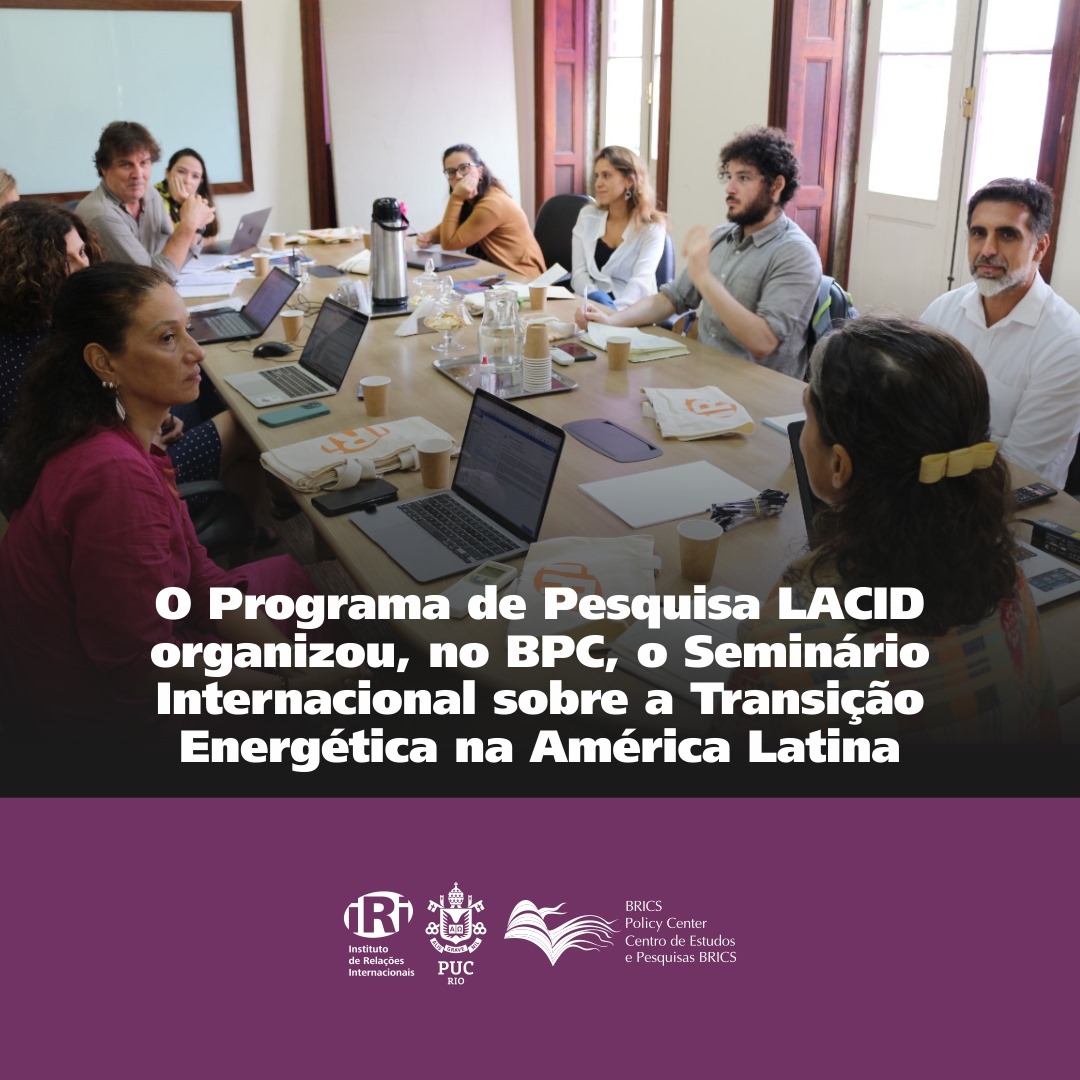
The LACID Research Program organized the International Seminar on the Energy Transition in Latin America at the BPC
On January 25th and 26th the Laboratory of Financing and International Cooperation for Development (LACID) of BRICS Policy Center, organized an international seminar on the energy transition in Latin America, with participants from Ecuador, Chile, Argentina and Brazil, with almost all the members of the organizations that make up the Collective on Chinese Financing and Investment, Human Rights and Environment (CCFIHRE). The meeting also sought to define an agenda of collective activities and actions.
The seminar discussed the paths that countries are taking towards a just energy transition, based on the broad idea of a socio-ecological energy transition, which questions the level of energy consumption.
The energy trilemma was addressed in the midst of the energy transition, in which we seek to simultaneously balance sustainability, supply, and physical and economic access.
It was pointed out that a change in the profile of Chinese direct investments in Latin America towards a greater share of investments in the renewable energy sector in countries such as Brazil, Peru and Chile. Additionally, the Asian country has been increasing its investments in the exploration of lithium in Argentina and Chile.
A fundamental point that was addressed is the fact that the actual energy transition is a mineral-intensive process. On one hand, South America possesses significant reserves of some of these minerals, such as copper and lithium. However, on the other hand, the technological capacities of the production of the equipment necessary to the transition is concentrated in a small group of countries among which China stands out.
It was therefore emphasized that care must be taken to ensure that the process of global energy transition does not reinforce extractivism in Latin America, turning territories into sacrifice areas.

